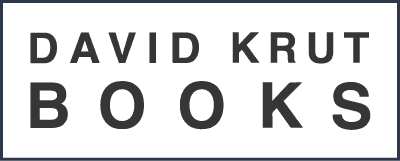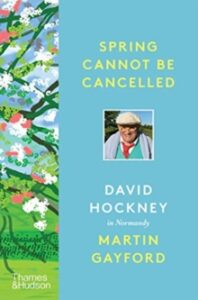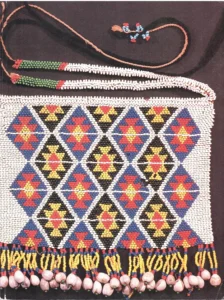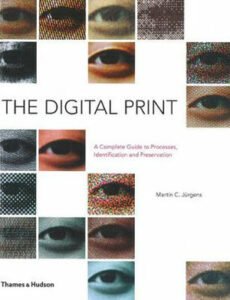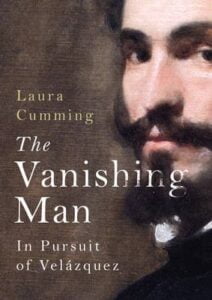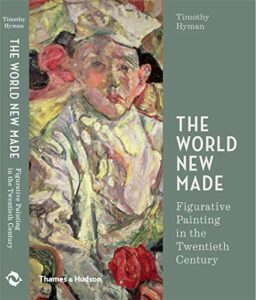Showing 65–80 of 293 results
-

R425This volume is the first sourcebook to provide, through original critical writings and artists’ statements, a genealogy of sonic pathways into the arts; philosophical reflections on the meanings of noise and silence; dialogues between art and music; investigations of the role of listening and acoustic space; and a comprehensive survey of sound works by international artists from the avant-garde era to the present.
-

R560So when Covid-19 and lockdown struck, it made little difference to life at La Grande Cour, the centuries-old Normandy farmhouse where Hockney set up a studio a year before, in time to paint the arrival of spring. In fact, he relished the enforced isolation as an opportunity for even greater devotion to his art.
-
 Out of stock
Out of stock -

R1750This collection of 40 essays by Ashraf Jamal can be regarded as a companion to his previous book, In the World: Essays on Contemporary South African Art. Together, they form a single venture to celebrate and entrench the rich complexity of South African artists in a global imaginary.
-
 Out of stock
Out of stock
R185Ten Years of Collecting (1979-1989), David Hammond-Tooke and Anitra Nettleton, softcover, published by the University of the Witwatersrand, 1989, tearing, creasing and wear to cover, shelf wear.
-

R330Linda Parry examines the whole range of Arts and Crafts textiles – not only printed but woven fabrics, tapestries and carpets, embroideries and lace – and provides invaluable information on designers, manufacturers and shops. Also included are rare photographs of some of the designers and of original interiors, where the fabrics appear in use.
-

R700This invaluable resource demystifies the complex, rapidly changing, and sometimes confusing world of digital print technologies. It describes the major digital printing processes used by photographers and artists over the past forty years, explaining and illustrating materials and their deterioration, methods of identification, and options for acquiring and preserving digital prints. A removable chart provides a ready reference for identifying specific materials.
-

R550Shocking, witty and always entertaining, Morris’s tales illuminate the striking variation in approaches to the Surrealist philosophy, both in the artists’ work and in their lives.
-

R260The Pre-Raphaelites and Their World discusses the lives and work of these friends and arch-rivals. Illustrated with photographs of the artists and reproductions of some of their finest paintings, it includes a history of the society from which the artists emerged, with a discussion of the position of women and the role of religion and literature in Pre-Raphaelite art.
-

R120The Standard Bank Foundation of African Art, housed at the University of the Witwatersrand Art Galleries was begun ten years ago. This exhibition, one of the largest of its kind ever held in South Africa, commemorates a partnership which expresses the true ideals of both private enterprise and public education in this country.
-

R810How many women artists do you know? Who makes art history? Did women even work as artists before the twentieth century? And what is the Baroque anyway?
-

R380An innovative fusion of detection and biography, this book shows how and why great works of art can affect us, even to the point of mania.
-

R250From the stolen Wakandan art in Black Panther, to Emmanuel Macron’s recent commitment to art restitution, and Beyoncé and Jay Z’s provocative music video filmed in the Louvre, the question of decolonising our relationship with the art around us is quickly gaining traction. People are waking up to the seedy history of the world’s art collections, and are starting to ask difficult questions about what the future of museums should look like.
In The Whole Picture, art historian and Uncomfortable Art Tour guide Alice Procter provides a manual for deconstructing everything you thought you knew about art, and fills in the blanks with the stories that have been left out of the art history canon for centuries.
-

A bold new critique of the accepted history of figurative painting in the twentieth century.
In The World New Made, critic Timothy Hyman argues that abstraction was just one of the means by which artists renewed pictorial language. Focusing on those painters who bucked tradition and opted for a new kind of figuration, Hyman presents them as a countermovement to the sometimes oppressive stylistic imperative that set in as Cubism became a movement. Around the world, artists such as Max Beckmann, Fernand Léger, Balthus, Paula Rego, Marc Chagall, Stanley Spencer, R. B. Kitaj, Philip Guston, Picasso, Matisse, Lucian Freud, and others found an idiom for human-centered painting. Together they offer a counterargument to Western formalism, but also a foundation for the figurative painters of the twenty-first century.
-

R70Catalogue from the exhibition “Trans positio ns – Five Swedish Artist in South Africa” which was on display between 28/3-10/5 1998 at The South African National Gallery, Cape Town, in collaboration with Moderna Museet. It included works by: Elisabet Apelmo, Matts Leiderstam, Annika Lundgren, Elin Wikström and Måns Wrange.
-

R300Uncertain curature is a volume of bold and original explorations of the archive – the past, our material inheritance – and the ways it is displayed, interpreted and given meaning in the postcolonial world of South Africa. This operation on the past – what the authors have called ‘curature’ – can be seen as the postcolony’s way of rescripting its own history, which is both a trauma to be dealt with and a resource for the future.
